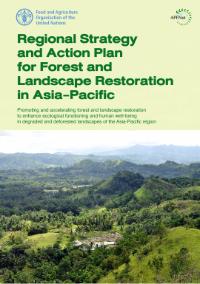Regional Strategy and Action Plan for Forest and Landscape Restoration in Asia-Pacific
Degradation of forests can have severe negative local impacts and far-reaching consequences, including soil erosion, loss of biodiversity, greenhouse gas emissions, dust storms, diminished livelihood opportunities and reduced yields of forest products and services. Reversing the adverse conditions requires urgent and scaled-up action, through scientific and holistic landscape-level restoration approaches, balancing both socio-economic and environmental goals and the diverse needs of various sectors and stakeholders in the landscape.



